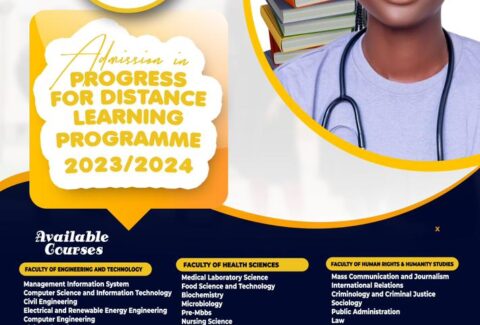WES EVALUATION
February 14, 2024 2024-02-14 13:53WES EVALUATION
Dreaming of pursuing higher education overseas? Make it a reality by validating your academic achievements through WES certification evaluation. Hill City University is your gateway to international universities.
WHAT IS WES EVALUATION ABOUT?
Dreaming of pursuing higher education overseas? Make it a reality by validating your academic achievements through WES certification evaluation. Hill City University is your gateway to international universities. Click the link to embark on your study abroad adventure today
Click On the Button Below To Begin

WES stands for World Education Services. It is a non-profit organization that specializes in credential evaluation services for international students and professionals. WES plays a crucial role in assessing and verifying academic credentials earned outside the United States or Canada.
Overall, WES plays a crucial role in facilitating the recognition of international education credentials, supporting individuals as they pursue further education, employment, or professional licensing in North America.
WES is globally recognized for its expertise in credential evaluation. Many academic institutions, employers, and government agencies in the United States and Canada trust WES evaluations to make informed decisions regarding admissions, hiring, and professional licensing. The organization’s commitment to accuracy and consistency has contributed to its reputation as a reliable authority in the field.
As part of its commitment to excellence, WES engages in ongoing research and development to adapt its evaluation methodologies to changes in education systems and industry standards worldwide. This ensures that the organization remains at the forefront of credential evaluation practices
Credential Evaluation: WES evaluates academic credentials such as diplomas, transcripts, and degrees from educational institutions worldwide. The evaluation process helps institutions, employers, and individuals understand the equivalency of foreign educational qualifications in the context of the U.S. or Canadian education systems.
Document Verification: WES verifies the authenticity of academic documents submitted by individuals. This includes confirming the legitimacy of diplomas, transcripts, and other educational records.
Translation Services: WES offers document translation services to ensure that non-English language documents are accurately translated, making them accessible to institutions and employers in English-speaking countries.
Educational Consulting: WES provides informational resources, webinars, and guidance to international students and professionals, helping them navigate the complexities of the education system and career planning in North America.
Access to Resources: WES offers various tools and resources, including guides, articles, and online platforms, to assist individuals in understanding the education systems, immigration processes, and job markets in the U.S. and Canada
When is a credential evaluation needed?
A credential evaluation is typically needed in various situations where individuals have earned academic credentials (such as degrees, diplomas, or certificates) outside the country where they are seeking further education, employment, or professional licensing. Here are common scenarios where a credential evaluation may be required
International Education:
- Admission to Educational Institutions: When applying for admission to a school, college, or university in a country different from where the academic credentials were obtained, a credential evaluation may be required to assess the equivalency of the foreign qualifications.
Employment Opportunities:
- Job Applications: Employers in certain industries may require a credential evaluation for candidates with international educational backgrounds. This ensures that the qualifications meet the standards and requirements of the local job market.
Professional Licensing:
- Regulated Professions: In professions that require licensure, certification, or accreditation, individuals with foreign credentials often need to undergo a credential evaluation to demonstrate that their education and training meet the necessary standards for professional practice.
1. Transfer of Credits:
- Credit Transfer: Students who have completed coursework or degrees abroad and wish to transfer credits to a different educational institution may need a credential evaluation to determine the equivalence of their previous studies.
Scholarship Applications:
- Scholarship Eligibility: Some scholarship programs may require a credential evaluation to assess the academic qualifications of applicants, especially if they have obtained their degrees from institutions outside the country offering the scholarship.
Work or Study Abroad Programs:
- Exchange Programs or Study Abroad: Individuals participating in exchange programs or study abroad initiatives may need a credential evaluation to ensure that their academic achievements are recognized by their home institution or the hosting institution.
What type of credential evaluation is needed?
The type of credential evaluation needed depends on the purpose for which the evaluation is required. Different situations may call for specific types of evaluations to meet the standards of educational institutions, employers, or professional licensing bodies. Here are some common types of credential evaluations:
Course-by-Course Evaluation:
- Purpose: Often required for education and employment purposes.
- Details: This evaluation provides a detailed analysis of each course completed, including credit hours, grades, and a comparison to the U.S. or Canadian educational systems. It is useful for academic admissions, employment, and credit transfer.
Document-by-Document Evaluation:
- Purpose: Commonly used for immigration and general employment purposes.
- Details: This evaluation verifies the authenticity of the academic documents and provides a summary of the credentials earned. It may not provide a detailed course-by-course breakdown but is sufficient for general purposes.
Professional Report:
- Purpose: Required for individuals seeking professional licensure or certification.
- Details: This evaluation is tailored to meet the specific requirements of licensing boards or professional associations. It includes an assessment of the applicant’s education, training, and qualifications in relation to the standards for professional practice.
Educational Credential Assessment (ECA):
- Purpose: Required for immigration to Canada through Express Entry.
- Details: The ECA is a specific type of evaluation recognized by Immigration, Refugees, and Citizenship Canada (IRCC) to assess the equivalency of foreign educational credentials for immigration purposes.
General Evaluation:
- Purpose: Suitable for various purposes, including employment and general recognition.
- Details: This evaluation provides a general assessment of the academic credentials without a detailed course-by-course breakdown. It is often used for employment and other situations where a broad overview is sufficient.
WES Applicant Is Responsible?
Submission of Required Documents:
- Applicants are responsible for gathering and submitting all required documents for evaluation. This includes transcripts, diplomas, certificates, and any other relevant academic records from the institutions where they completed their education.
Payment of Fees:
- WES charges fees for its evaluation services. Applicants are responsible for making the necessary payments to cover the cost of the evaluation. The fees may vary depending on the type of evaluation and additional services requested.
Choosing the Correct Evaluation Type:
- Applicants need to carefully select the type of evaluation they require based on their specific needs, such as a course-by-course evaluation for education purposes or a professional report for licensure purposes. Choosing the correct evaluation type is crucial for meeting the requirements of the institution or organization that will receive the evaluation report.
Providing Accurate Information:
- It is the responsibility of the applicant to provide accurate and truthful information throughout the application process. This includes details about their educational background, institutions attended, and any additional information required by WES.
Ensuring Authenticity of Documents:
- Applicants must ensure that the documents submitted for evaluation are authentic and have not been altered. WES may perform document verification, and any discrepancies could affect the evaluation process.
Monitoring Application Status:
- Applicants should regularly check the status of their application through the WES online portal. This allows them to track the progress of the evaluation, view any updates, and respond promptly to any requests for additional information.
We are thrilled to announce a groundbreaking partnership between Hillcity University and World Education Services (WES). This collaboration marks a significant milestone in our commitment to providing international students with unparalleled educational opportunities and support

Dreaming of pursuing higher education overseas? Make it a reality by validating your academic achievements through WES certification evaluation. Hill City University is your gateway to international universities. Click the link to embark on your study abroad adventure today
click here to begin






